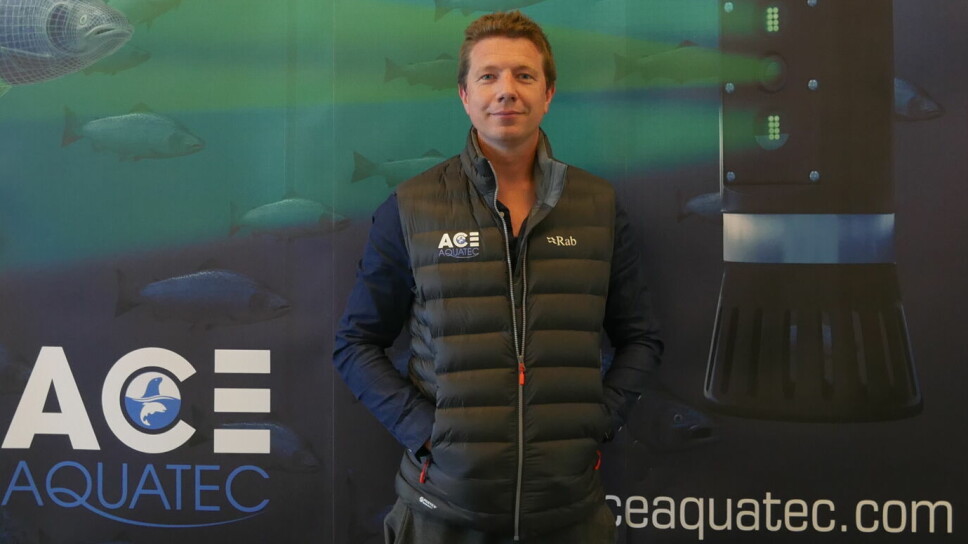
Looking back, thinking ahead:
Nathan Pyne-Carter
Fish Farming Expert has asked individuals connected to the salmon farming industry about their year, and what they hope for in 2023. We continue the series with Nathan Pyne-Carter, chief executive of Dundee-based international aquaculture technology innovator Ace Aquatec.
What have been the highlights for you professionally in 2022?
The past year has been Ace Aquatec’s busiest to date, with the full commercialisation of our humane stunning technology, and continued advances in our pioneering R&D work.
A major highlight this year has been rolling out our in-water electric stunner to a global market. There are now 42 systems in place, from our trial partner Scottish Sea Farms in Scotland, which now has five stunners installed in its salmon processing plants, to the world’s biggest tilapia producer, Regal Springs, which has two units. As we have scaled up, production of the stunners has moved to a new UK-based manufacturer, and we now have a network of international distributors from Greece to USA and Australasia, so people can observe the system in action wherever they are in the world.
Our customers are seeing improvements in the welfare and quality of their fish, and also an increase in the throughput.
To cap the commercial success, Ace Aquatec’s ground-breaking work on humane slaughter was recognised with an Aquaculture UK award for animal welfare, shared with the University of Stirling, and presented in Aviemore in May.
We feel we now have a biomass system which will really help customers track their fish and calculate fish weights and distribution in a range of operation environments.
Nathan Pyne-Carter
What are the most significant challenges and opportunities for your company in the coming year?
We’ll finally be launching our biomass system to the market in the first half of 2023, following extensive trials in Scotland. It’s been a long and interesting journey, but we feel we now have a system which will really help customers track their fish and calculate fish weights and distribution in a range of operation environments. We have customers already lined up, principally in Scotland but also in New Zealand, and we are about to begin production at a Dundee-based manufacturer for the first 15 units.
We’ve also secured a European Innovation Council accelerator grant of €1.2 million to develop the next stage of our sea lice system – a welfare focused process that uses electricity and water jets. This grant will enable new tests with small batches of salmon, first in Canada, and then in Norway and Scotland in late 2023.
With so much going on, Ace’s fast expanding team has been much in demand, delivering presentations from Canada to Spain to the EU. Next year we will all be moving up another gear, in order to fulfil both our burgeoning sales commitments and our exciting innovation programme.
What do you see as the most significant challenges for the salmonid farming industry in Scotland and globally in 2023?
A welfare-first approach, data quality and supply chain efficacy will be crucial elements to give more transparency in aquaculture globally. Supermarkets and consumers will seek confirmation that farms are committed to using new technologies that support the wellbeing of farm-raised salmon and create an environment that promotes the best management practices.






















































